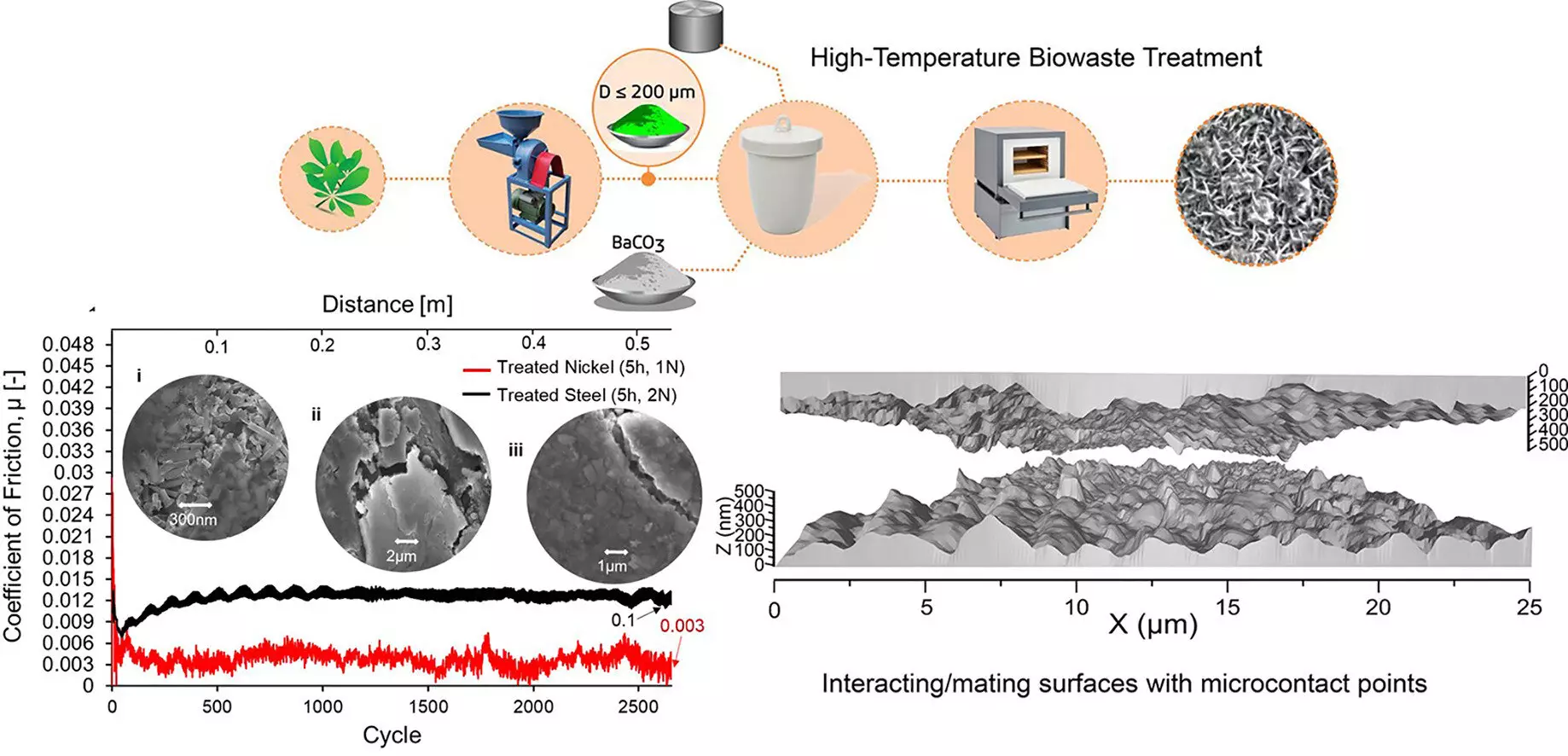The recent publication by Dr. Winston “Wole” Soboyejo and Dr. Tabiri Kwayie Asumadu, titled “Robust Macroscale Superlubricity on Carbon-Coated Metallic Surfaces,” has brought to light an innovative approach to reducing friction on metallic surfaces. This breakthrough could potentially revolutionize multiple industries by significantly improving efficiency and durability.
The study reveals that superlubricity, a state with extremely low friction that was previously only attainable at the nanoscale, can now be achieved at the macroscale for extended periods. By utilizing sustainably produced carbon coatings derived from biowaste, the research demonstrates a new way to combat friction-related challenges in various sectors.
Impact on Industries
The implications of this research are far-reaching, with potential benefits across different industries. In the automotive sector, where a substantial amount of fuel is consumed to overcome friction, the implementation of these novel coatings could lead to a significant improvement in fuel efficiency. Similarly, in manufacturing and industrial settings, the reduced wear and tear facilitated by superlubricious coatings could result in substantial cost savings.
The experimental and computational results presented in the paper highlight the ultralow friction properties of carbon-coated metallic surfaces. Through the deposition of carbon nanocrystals with graphene footprints on various metallic substrates, the researchers were able to achieve a coefficient of friction as low as ~0.003. The sustainability aspect of using biowaste as a carbon source for these coatings further adds to the environmental benefits of the research.
Future Implications
The development of robust and cost-effective macroscale superlubricious carbon coatings holds promise for the design of more efficient and sustainable industrial processes. By extending the lifespan of machine parts, reducing maintenance costs, and improving overall productivity, this innovative approach could pave the way for a greener and more economically viable future.
The groundbreaking research conducted by Dr. Soboyejo, Dr. Asumadu, and their team sheds light on a potential game-changer in the field of friction reduction. The ability to achieve superlubricity at the macroscale opens up new possibilities for diverse industries and underscores the importance of sustainable innovation in addressing global challenges. As we look towards a more environmentally conscious and economically efficient future, the impact of this research cannot be overstated.


Leave a Reply